Cyber & New Law Success
Digital Frontiers & Smart Law






Home » Cyber Law 1
FINDING REAL STRESS FREE DETAILS & SOLUTIONS
Go Directly to our Specialist Family Law Information Pages Below
How to maximise our commercial and tax
knowledge for the best
financial settlements.
Positioned as a New Age Law Firm
We Drive & Thrive on Innovation & Change

Reshaping & Combining the Traditional Areas of Law
Law is increasingly challenged by being applied to areas involving societal, political and technological changes. Legal systems slowly but eventually adapt, but this adaption needs to be properly driven by lawyers who welcome and embrace the new frontiers.
We welcome questions on challenging new areas where traditional legal principles need to be extended or extrapolated.
Awarded for legal innovation. Working as a smart law firm, since 2016. This is not a “fad” to us, but who we are.
HOW GOLDMAN LAW REMAINS UNIQUE?
Our Past Success Only Drives our Future Innovation

Expert Snr
Lawyers
Our team of Senior lawyers have 10 yrs+ minimum law expertise. We know what we are doing.

Quick Turnaround
Our expert support team ensures each Senior lawyer’s work load is efficient & commercial.

Our
Fees
We offer fixed fees, payment plans and transparent up-front full fees, cost estimates.

Commercial Resolution
Our expert Senior lawyers explore all commercial options. Court is a last resort when required.

Complex & Global
Our expert Senior lawyers relish what is complex to other law firms and love global matters.
OUR PAST AWARDS CANNOT GUARANTEE FUTURE SUCCESS
Compassion & Individual Lawyer's Commitments Must Remain Present



OUR THANKS TO OUR PAST CLIENTS
Read More About Their Experiences
Chel Chappy
I highly recommend Goldman Law.
Every contact I had with the firm was friendly, professional and understanding.
Jennifer is an outstanding lawyer. I had had a difficult ongoing children’s matter...

Quentin Carmont
A family law matter is never pretty emotions are running hot, everyone thinks they’re right when in reality no one is.
Goldman made the process very easy for me to choose them.
Initial contact with Kim and then a small consultation with Jass there senior lawyer...

Paul Northrop
I have used G&C on numerous occasions for business matters. I have always found them to be incredibly responsive with sound advice. I know that with the G&C team working on my legal matters, it takes the pressure off me and allows me to concentrate on running my business!
Pauline Von Czapiewski
Wonderful team of professionals to deal with from office support to solicitors. Always has a quick response time, and good advice. Incredibly impressed and will be sure to use again in the future...
Jane Mac
I have found Goldman’s to be a highly skilled and caring group of lawyers who have guided me many times during periods of uncertainty and stress. I couldn’t do without their considered and professional advice for our businesses.
Talia Falo
Goldman & Co handled my case extremely well, gave fantastic advice and overall eased up the tension of the entire situation immensely. I felt they genuinely cared for my well-being and what I am going through so great thanks to them. Would highly recommend...
Contact Our Senior People
RISK FREE NO OBLIGATION STRATEGY DISCUSSION

- Mr. Jaswinder Sekhon<br /><span>Director & Principal**</span>Jaswinder strives to simplify and demystify complex legal matters, to explain them logically and without "jargon" He resolves and commits to the best possible commercial outcomes for his clients.
- Mr. Gidon Sattinger<br /><span>Strategy</span>Gidon Sattinger is the founder, Director and CEO of Vintech Systems, a private company with a multimillion dollar turnover. Vintech Systems is the exclusive distributor that imports, installs and services
- Mr. Adrian J Compton<br /><span>Finance & Compliance </span>Adrian is one of the firms co founder’s and has arranged for the stepped equity investment into the firms IP and the digital platforms for execution (of the legal services new age model).
- Mr. Mohammed Fawzy<br /><span>UAE General Counsel**</span>Senior General counsel. Over 10 years of experience in the UAE in dealing with all Government departments, provides a variety of corporate and legal services, company formation, corporate contracts, dispute resolution and arbitration issues.
- Mr. Ed Rogers<br /><span>Trusts, Tax & Wealth**</span>Ed Rogers TEP is a British citizen who is tax resident in the Isle of Man. He is the CEO of the Professional Protector Group (PPG) and he has 35 years of trust business experience gained in multiple jurisdictions across the world.
- Mr. David Hill<br /><span>Trusts, Tax & Wealth**</span>Dr. David Logan Hill JD, LLM, TEP is a US citizen, currently living in Switzerland. David is a senior lawyer with more than 25 years of international trust and tax planning experience. David is the owner of a professional trustee company and he is also the sole owner of Protector Group (USA) LLC, which delivers
- Mr. Andrea Bartoli<br /><span>Trusts, Tax & Wealth**</span>Andrea is an Italian citizen who is tax resident in Hong Kong, He is the owner of a licensed trust and corporate services provider company in Hong Kong. Andrea also delivers tax-efficient solutions to his international clients and he is currently studying for the CPA qualification
- Ms. Svetla Pencheva<br /><span>Trusts & Wealth**</span>Svetla is a Bulgarian citizen and resides in the Netherlands. She has over 15 years of professional experience in international wealth and succession planning, legal corporate environment and fiduciary services, implementation of investment structures and tax planning.
- Ms. Helena J. Duckham<br /><span>Family & Disputes**</span>Helena Duckham graduated her law degree with honours. She has a Master of Law in applied family law, including binding financial agreements, and a Graduate Diploma in Family Dispute Resolution. Helena works exclusively in family law, and she is experienced in negotiating outcomes using a mediation mindset and focuses on finding sturdy resolutions for families.
- Mr. Mathew Nott<br /><span>Criminal & Disputes**</span>Mathew joined Goldman and Co Lawyers as a solicitor in 2020. He was admitted to the Supreme Court of NSW in 2017. His focus is criminal law and ensuring our clients get the best defence when facing criminal charges.
- Ms. Zeinab Elzein<br /><span>Family & Disputes**</span>Zee is an experienced family lawyer. Her experience ranges from complex property settlement litigation matters to contested children matters, including relocation matters
- Mr. David Russell K. C.<br /><span>Senior Counsel (KC) </span>David is an outstanding lawyer with an enormous reputation that goes beyond national boundaries. As such, he is very well connected within the international legal community. When working together on an assignment, David always manages to make sure matters are viewed from various perspectives.
- Ekta Jhanjhri<br /><span>Commercial & Disputes**</span>Ekta is a law graduate from the Institute of Law, Nirma University, India. She completed her graduation in 2021 and has an excellent academic record. Her enthusiasm and inquisitiveness have led her to progress .
- Gargi Pareek<br /><span>Medical & Disputes </span>Lorem Ipsum is simply dummy text of the printing and typesetting industry. Lorem Ipsum has been the industry's standard dummy text ever since the 1500s, when an unknown printer took a galley of type and scrambled it to make a type specimen book. It has survived not only five centuries, but also the leap into electronic typesetting, remaining essentially unchanged.
- Rutuja Naik<br /><span>Corporate & Disputes </span>Lorem Ipsum is simply dummy text of the printing and typesetting industry. Lorem Ipsum has been the industry's standard dummy text ever since the 1500s, when an unknown printer took a galley of type and scrambled it to make a type specimen book. It has survived not only five centuries, but also the leap into electronic typesetting, remaining essentially unchanged.
- Ram Sethi<br /><span>Director: Cyber &</span>Lorem Ipsum is simply dummy text of the printing and typesetting industry. Lorem Ipsum has been the industry's standard dummy text ever since the 1500s, when an unknown printer took a galley of type and scrambled it to make a type specimen book. It has survived not only five centuries, but also the leap into electronic typesetting, remaining essentially unchanged.
- Kerry Turner <br /><span>PR VIP Projects </span>Lorem Ipsum is simply dummy text of the printing and typesetting industry. Lorem Ipsum has been the industry's standard dummy text ever since the 1500s, when an unknown printer took a galley of type and scrambled it to make a type specimen book. It has survived not only five centuries, but also the leap into electronic typesetting, remaining essentially unchanged.
- Mr Chandra Shekhar<br /><span>Director IT & e-Law </span>Ekta is a law graduate from the Institute of Law, Nirma University, India. She completed her graduation in 2021 and has an excellent academic record. Her enthusiasm and inquisitiveness have led her to progress .
- Mr. Argie Jabanes <br /><span>General & Finance</span>Lorem Ipsum is simply dummy text of the printing and typesetting industry. Lorem Ipsum has been the industry's standard dummy text ever since the 1500s, when an unknown printer took a galley of type and scrambled it to make a type specimen book. It has survived not only five centuries, but also the leap into electronic typesetting, remaining essentially unchanged.
- Jubilee Ramos<br /><span>Systems & Finance </span>Lorem Ipsum is simply dummy text of the printing and typesetting industry. Lorem Ipsum has been the industry's standard dummy text ever since the 1500s, when an unknown printer took a galley of type and scrambled it to make...
- Mr M. Ali<br /><span>Corporate & Commercial</span>Lorem Ipsum is simply dummy text of the printing and typesetting industry. Lorem Ipsum has been the industry's standard dummy text ever since the 1500s, when an unknown printer took a galley of type and scrambled it to make a type specimen book. It has survived not only five centuries, but also the leap into electronic typesetting, remaining essentially unchanged.

Zeinab Elzein
A senior family lawyer and General Counsel
10 years +++

Mathew Nott
A senior lawyer also specialising
in domestic violence.
in domestic violence.

Kerry Turner
Clients and
workflows
15 years +++
workflows
Your first contact point for everything about us and our lawyers . Kerry is unmatched in her gentle handling and real life knowledge. She controls our lawyers. Compassion, integrity with practical reality.
How will Embracing Tech Help Clients?
Reduce Cost, Increase Responsiveness
Clients Benefit in Smart Contracts and Threat Protection
Collaborations and discussion will help shape the future of law and institutions in these new frontiers. Rapid technological advancements have quickly changed the cyber-security and data protection concepts. We face sophisticated threats, from employees, associates and cyber criminals.
Law firms advise on best practice from data and privacy breaches to comply with directors duties and to protect your information, know how and business from employee and external threats.

READ OUR Criminal Law NEWS & OUR ARTICLES
Some Extracts From Our Media and Community Pages

DIY Divorce & Separation
Guided Self Help Six Easy Steps To DIY Divorce Keywords: Family Law, Divorce, Divorce in Australia, Divorce Australia DYI | Divorce Separation | Divorce Separation Agreement | Self-Help | legal costs | Lawyers | Family Law | Family Court | Guided Self-Help
Read time : 9 minutes, 22 seconds

Counseling Sessions Revealing Possible Child Abuse and Family Violence
The case of Douglas & Mauldon [2015] FCCA 2217 (17 August 2015) was a Federal Circuit Court of Australia case about parenting matters between the Applicant wife and Respondent husband. The case involved objections to documents requested by way of su
Read time : 4 minutes, 35 seconds

Mother Allowed To Relocate After Considering 11-Year-Old Daughter's Be
Keywords: Best interests of the child; relocation In Timms & Payton [2015] FCCA 3324 (18 December 2015) Judge Altobelli heard the applicant mother’s request to relocate with the parties’ 11-year-old daughter (“X”) from one locati
Read time : 3 minutes, 23 seconds
Successfully Defining & Using a NFT
Legal Issues and Rights
How a NFT is “Sold” & Makes Money
These might include certifying an asset’s ownership, issuing an intellectual property rights (IPR) license, or even having a contractual right to use or receive something (digital or virtual) or to access benefits. Being upfront will prevent the issuer from reneging on unintended rights and potential buyer claims that the rights being offered were misrepresented.
The buyer of an NFT must also be aware of what they are getting. For instance, if the NFT includes smart contract functionality, this may not be immediately apparent but will be encoded into it.

Experience & Trust
With deep local and international expertise for over 30 years.
Growing and protecting successful individuals, family offices and business.
Experience & trust built through sheer hard work
WHEN YOU NEED MORE DETAILS
From Real Family Law FFAQ's (Further Frequently Asked Questions)
Why should we be worried about cyber security?
- If realised, cyber security risks have the potential to significantly disrupt your business operations. This can result in significant incident response costs, damage to your organisation’s brand and reputation, and depending on your response, shareholder or regulatory action.
- Managing cyber security risks requires strong leadership with the board working in concert with executives and technical teams to understand the organisation’s risk exposure. Encouraging an organisational culture that supports cyber security is important, as is supporting technical experts and information technology (IT) departments in their cyber security efforts.
Do you understand your threat environment?
- Understanding what systems are critical to core business operations, and their security posture, is integral to managing cyber security risks. Furthermore, in order to determine cyber security risks, you need to have an understanding of the threat environment in which your business operates.
Hacking (i.e. unauthorised access)
- In Australia, unauthorised access to computer systems is criminalised by both State and Federal legislation.
- In the Federal jurisdiction, hacking is criminalised under the Criminal Code Act 1995 (Cth) (“the Code”).
- Most commonly, persons suspected of engaging in cybercrime are charged pursuant to the Code, given its universal application in all States and Territories in Australia.
- Persons suspected of unauthorised access to computer systems are charged pursuant to s. 478.1 of the Code, which provides for the offence of “Unauthorised access to, or modification of, restricted data”.
- An example of state-based legislation criminalising hacking of private computer systems is Part 6 the New South Wales Crimes Act 1900 (“NSW Crimes Act”). Part 6 relates to “Computer Offences” and sets out multiple offences centred around unauthorised access, modification, or impairment of restricted data and electronic communications.
Phishing
- Phishing, being a form of online fraud, is criminalised under the Code in instances where the victim is said to be a Commonwealth entity. When the victim is a member of the public, charges are brought under parallel State or Territory legislation. In New South Wales (“NSW”), charges could be brought under s. 192E of the NSW Crimes Act, which criminalises the general offence of fraud.
Depending on the subsequent financial gain or loss suffered subsequent to the activity, the below charges are available:
- S. 134.2(1) – obtaining a financial advantage by deception.
- S. 135.1(1) – general dishonesty – obtaining a gain.
- S. 135.1(3) – general dishonesty – causing a loss.
- S. 135.1(5) – general dishonesty – causing a loss to another.
- For the charge to be proven, the prosecution must establish that the accused obtains or causes a financial advantage, gain or loss by way of deception or dishonesty. The maximum penalty for each offence is 10 years’ imprisonment.
- In the Federal jurisdiction, hacking is criminalised under the Criminal Code Act 1995 (Cth) (“the Code”).
NSW Crimes Act Part 6 Computer Offences.
- Distribution, sale or offering for sale of hardware, software or other tools used to commit cybercrime
- Distribution, sale or offering for sale of hardware, software or other tools used to commit cybercrime is criminalised by s. 478.4 of the Code,
- Possession or use of hardware, software or other tools used to commit cybercrime
- Possession or use of hardware, software or other tools used to commit cybercrime is criminalised by s. 478.3 of the Code, which provides for the offence of possession or control of data with intent to commit a computer offence.
- The maximum penalty for a contravention of s. 478.3 of the Code is three years’ imprisonment.
- ss 308F and 308G of the NSW Crimes Act.
Identity theft or identity fraud (e.g. in connection with access devices)
- Identity crime, and in particular identity fraud offences, are criminalised by Division 372 of the Code. Particular acts that are criminalised include dealing in identification information, dealing in identification information that involves use of a carriage service, possession of identification information, and possession of equipment used to make identification information.
- The offence of “Dealing in identification information that involves use of a carriage service” is most relevant to cybercrime. It is criminalised by s. 372.1A of the Code
Electronic theft (e.g. breach of confidence by a current or former employee, or criminal copyright infringement)
- Electronic theft is criminalised by s. 478.1 of the Code. the unauthorised copying of data from a computer would contravene this offence provision.
- Unsolicited penetration testing (i.e. the exploitation of an IT system without the permission of its owner to determine its vulnerabilities and weak points)
- Any other activity that adversely affects or threatens the security, confidentiality, integrity or availability of any IT system, infrastructure, communications network, device or data
Part 10.6 of the Code creates offences related to telecommunication services.
- They include offences relating to dishonesty with respect to carriage services and interference with telecommunications.
- Additionally, the above-mentioned Part 6 of the NSW Crimes Act would likely be an example of state legislation that could cover these types of activities.
Extended geographical jurisdiction 10.7 of the Code (Divisions 477 and 478).
- A person will not commit offences under that Part unless: the conduct constituting the alleged offence occurs wholly or partly in Australia, or wholly or partly on-board an Australian aircraft or an Australian ship; the conduct constituting the alleged offences occurs wholly outside Australia and a result of the conduct occurs wholly or partly in Australia, or wholly or partly on-board an Australian aircraft or an Australian ship; the conduct constituting the alleged offence occurs wholly outside Australia; and, at the time of the alleged offence, the person is an Australian citizen or at the time of the alleged offence, the person is a body corporate incorporated by or under a law of the
Mitigating Factors
- Section 16A of the Crimes Act 1914 (Cth) sets out matters for the Court to consider when passing sentences for federal offences, including offences against the Code.
- Matters that will generally mitigate a penalty include the timing of any guilty plea, the offender’s character, the offender’s prior record, assistance provided by the offender to the authorities and the offender’s prospect of rehabilitation and likelihood of reoffending. In some circumstances, the absence of intent to cause damage or make a financial gain could be taken into account by a sentencing court as a factor of mitigation, if this is not a necessary element of the offence.
- A number of the offences particularised above require intent to be proven to establish the charge. For example, a necessary element of s. 478.2 of the Code is that the defendant “intended to cause the impairment” to the data.
- the Privacy Act (Cth) (“Privacy Act”);
- the Crimes Act 1914 (Cth);
- the Security of Critical Infrastructure Act 2018 (Cth);
- the Code (Cth); and
- the Telecommunications (Interception and Access) Act 1979 (Cth).
- The Australian Securities and Investments Commission (“ASIC”) provides guidance to Australia’s integrated corporate markets, financial services and consumer regulator, and organisations through its “cyber reliance good practices”. The good practices recommend, inter alia, periodic review of cyber strategy by a board of directors, using cyber resilience as a management tool, for corporate governance to be responsive (i.e. keeping cybersecurity policies and procedures up to date), collaboration and information sharing, third-party risk management and implementing continuous monitoring systems.
- The Office of the Australian Information Commissioner (“OAIC”) recommends that entities have a data breach response plan that includes a strategy for containing, assessing and managing data breaches and strategies for containing and remediating data breaches.
- In February 2018, the Privacy Amendment (Notifiable Data Breaches) Act 2017 amended the Privacy Act to require Australian Privacy Principles (“APP”) entities to, as soon as practicable, provide notice to the OAIC and affected individuals of an “eligible data breach”, where there are reasonable grounds to believe that an “eligible data breach” has occurred. This process is called the Notifiable Data Breaches Scheme (“NDB Scheme”).
- A failure by a company to prevent, mitigate, manage or respond to an Incident may result in breaches of provisions of the Corporations Act 2001 (Cth).
- The Corporations Act 2001 (Cth) imposes duties on directors to exercise powers and duties with the care and diligence that a reasonable person would. A director who ignores the real possibility of an Incident may be liable for failing to exercise their duties with care and diligence.
- Are companies (whether listed or private) required under Applicable Laws to: (a) designate a CISO (or equivalent); (b) establish a written Incident response plan or policy; (c) conduct periodic cyber risk assessments, including for third party vendors; and (d) perform penetration tests or vulnerability assessments?
- NO. Presently not required for companies to designate a chief information security officer (“CISO”), establish a written Incident response plan or policy, conduct periodic cyber risk assessments or perform penetration tests or vulnerability assessments.
- Australian common law does not recognise a general right of privacy. The equitable cause of action for breach of confidence may provide a remedy for invasions of privacy.
- Traditionally, the elements are that information must be confidential, information must have been imparted in circumstances importing an obligation of confidence and there must be an unauthorised use of that information.
- The current doctrine of breach of confidence does not currently entertain cases of wrongful intrusion, as opposed to cases of wrongful disclosure of confidential information.
- The Privacy Act regulates the way Commonwealth agencies handle personal information.
- A person may apply to the Court for an order that an entity pay compensation for loss or damage suffered by the person if a civil penalty has been made against the entity, or the entity is found guilty of an offence under the Privacy Act.
- The High Court in ABC v Lenah Game Meats Pty Ltd (2001) 208 CLR 199 sanctioned the recognition of a tort of invasion of privacy.
- Judge Hampel in the case of Doe v ABC (2007) VCC 281 imposed liability in tort for the invasion of the plaintiff’s privacy.

































